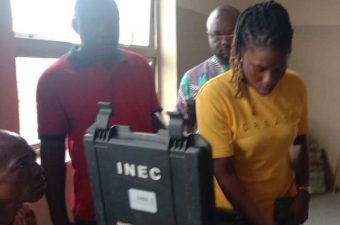*Denies transmitting results electronically
*Rejects Atiku’s acclaimed figures from INEC’s server
The Presidential Candidate of the Peoples Democratic Party (PDP) in the last 23 February 2019 presidential election, Alhaji Atiku Abubakar, may have been in enmeshed in fresh scam as the Independent National Electoral Commission (INEC) says he is parading fabricated and invented presidential results which he claimed to emanate from the its server.
Atiku, in his petition before the presidential election tribunal, had claimed he defeated President Muhammadu Buhari by 1,615,302 votes.
He said data from INEC server showed that he polled a total of 18,356,732 votes to defeat President Muhammadu Buhari, whom he said had 16,741,430 votes, although The DEFENDER gathered the electoral umpire had made it clear to all stakeholders in the build up to the postponed poll that it would not conduct the 2019 elections electronically and therefore would not have its results generated electronically and therefore that nobody should exercise fear regarding activities of hackers.
INEC had declared Buhari winner of the February election, having polled 15,191,847 votes to defeat Atiku, who scored 11,262,978 votes.
In its response as the first respondent in the case, INEC disowned Atiku’s figures which the former vice president attributed to a website, factsdontlie.com.
According to INEC, the results were “invented” solely for the petition.
According to TheCable, on page eight of its 80-page, INEC said: “Further to the foregoing, the website described as www.factsdontlieng.com was neither created nor owned by the 1st Respondent (INEC). It is a site not known to the 1st Respondent.
“The 1st Respondent does not share information with such an unclassified entity and any information purportedly derived therefrom which does not accord with the result as declared by the 1st Respondent is not authentic but rather was invented for the purpose of this case.”
INEC also denied transmitting results electronically, thereby rejecting Atiku’s claims that the figures were derived from INEC’s server.
“The 1st Respondent (INEC) did not adopt electronic transmission or collation of results in the conduct of the election, voting by electronic means not having been adopted as a provision of the Electoral Act. The 1st Respondent specifically denies the existence of electronic transmission of results as it is unknown to the Electoral Act, 2010 (as amended) and Regulations and Guidelines for the conduct of the elections, 2019, and put the Petitioners to the strictest of proof thereof.”
INEC will be relying on 83 witnesses in its defence, TheCable reports.




